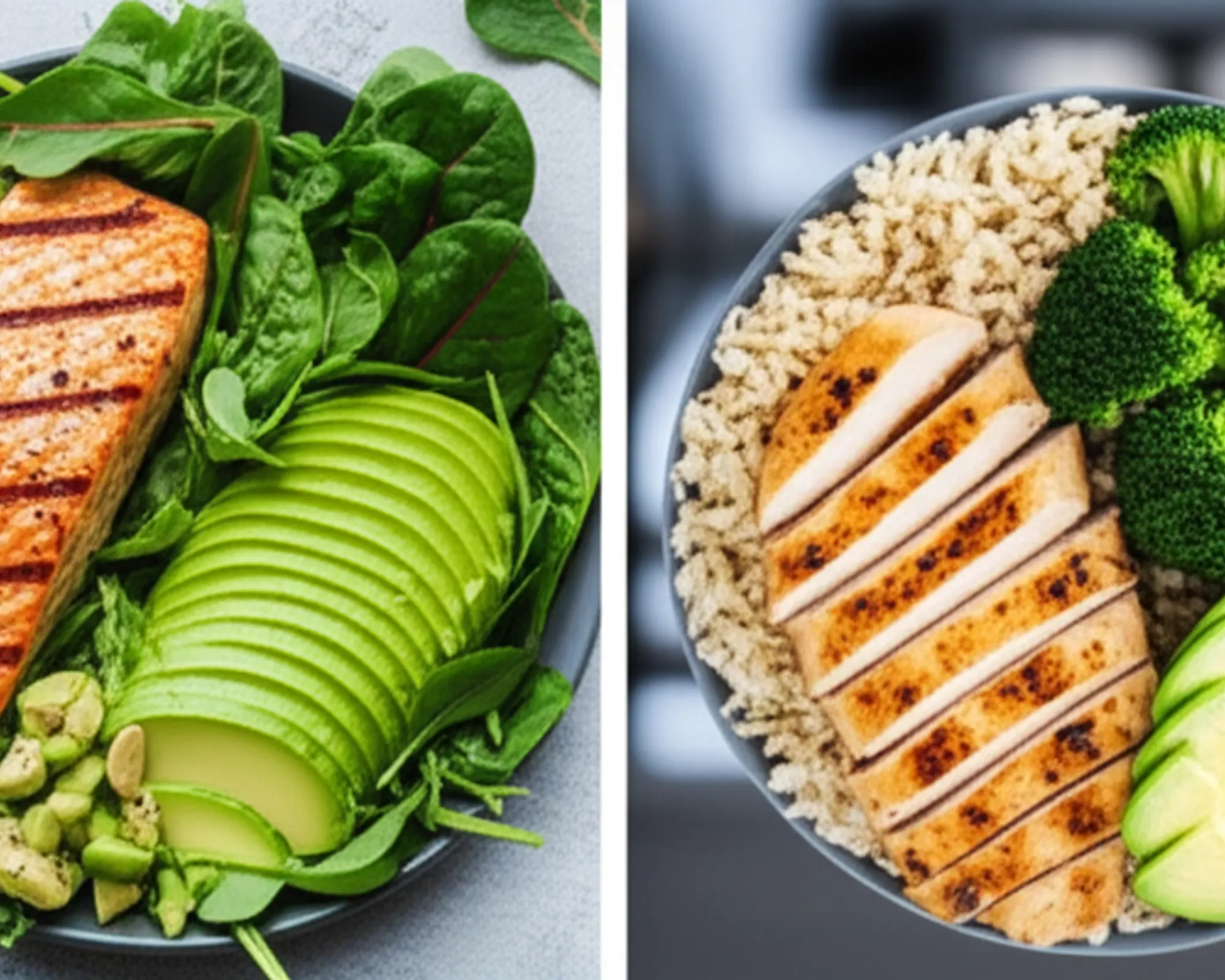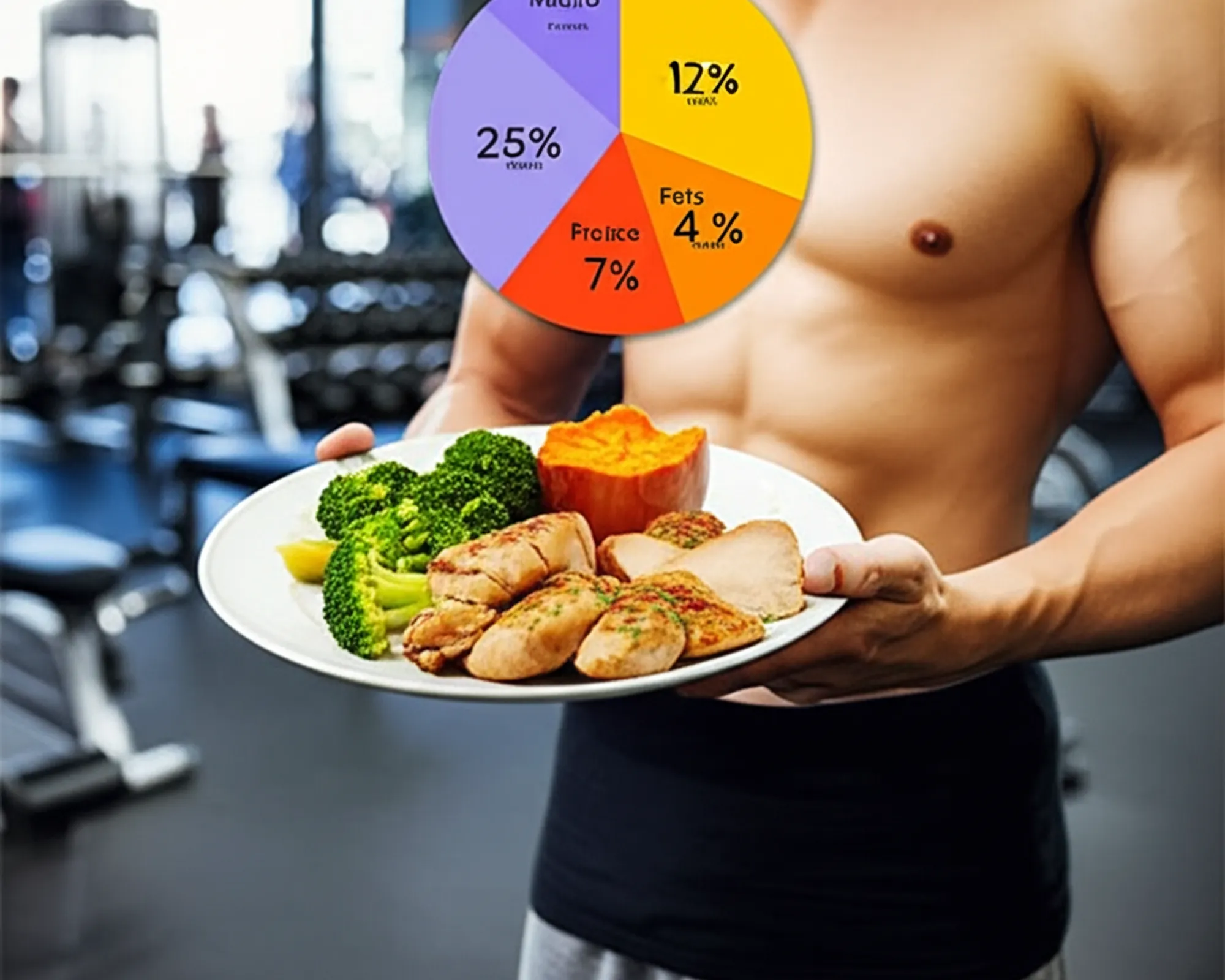The Science of Macros: Building Blocks for Muscle Growth

For anyone serious about building muscle, the journey extends far beyond the gym floor. While lifting weights provides the stimulus, what you put into your body dictates how effectively that stimulus translates into tangible gains. This is where the "science of macros" comes into play – understanding the fundamental building blocks of nutrition: proteins, carbohydrates, and fats. These macronutrients aren't just calories; they are vital components, each playing a distinct yet interconnected role in muscle repair, growth, and overall performance.
What Are Macronutrients? The Big Three Explained
Macronutrients are the nutrients your body needs in large amounts to provide energy and support bodily functions. There are three primary macros:
- Protein: The undisputed king of muscle building.
- Carbohydrates: Your body's primary energy source.
- Fats: Essential for hormone production and nutrient absorption.
Each macronutrient provides a different amount of energy, measured in calories:
- Protein: 4 calories per gram
- Carbohydrates: 4 calories per gram
- Fats: 9 calories per gram
Understanding these values is the first step in precisely fueling your body for muscle growth.
Protein: The Architect of Muscle
When you lift weights, you create microscopic tears in your muscle fibers. Protein is the material your body uses to repair these tears and build new, stronger muscle tissue. This process, known as muscle protein synthesis (MPS), is critical for hypertrophy (muscle growth).
Why Protein is Paramount:
- Amino Acids: Proteins are made up of amino acids, often called the "building blocks" of muscle. There are 20 different amino acids, nine of which are essential (meaning your body cannot produce them and you must get them from your diet).
- Muscle Repair & Growth: Adequate protein intake ensures a positive nitrogen balance, which is necessary for muscle growth and preventing muscle breakdown.
- Satiety: Protein is highly satiating, helping you feel fuller for longer, which can be beneficial when managing overall calorie intake.
How Much Protein Do You Need?
For individuals actively training and looking to build muscle, general recommendations range from 1.6 to 2.2 grams of protein per kilogram of body weight (or 0.7 to 1 gram per pound of body weight) per day. Spreading your protein intake throughout the day, with 20-40 grams per meal, can optimize MPS.
Sources: Lean meats (chicken, turkey, beef), fish, eggs, dairy (Greek yogurt, cottage cheese), legumes, and protein supplements (whey, casein, plant-based).
Carbohydrates: Fueling Performance and Recovery
Often demonized in fad diets, carbohydrates are crucial for muscle growth, particularly for those engaged in intense training. Carbs are broken down into glucose, which is then stored as glycogen in your muscles and liver. Glycogen is your body's primary and most efficient energy source, especially during high-intensity exercise like weightlifting.
The Role of Carbs:
- Energy for Workouts: Sufficient glycogen stores mean you can perform at your best, pushing heavier weights and completing more reps, which directly translates to a stronger muscle-building stimulus.
- Muscle Preservation: When glycogen stores are depleted, your body might start breaking down muscle protein for energy, hindering your progress. Carbs spare protein for its primary role in muscle repair.
- Recovery: Post-workout carbohydrates are vital for replenishing glycogen stores, speeding up recovery, and preparing your muscles for the next session. They also aid in insulin release, which helps transport amino acids into muscle cells.
Carb Timing and Types:
Focus on complex carbohydrates (oats, brown rice, sweet potatoes, whole grains) for sustained energy throughout the day. Simple carbohydrates (fruits, white rice, dextrose) can be beneficial immediately post-workout to rapidly replenish glycogen.
Sources: Oats, brown rice, quinoa, sweet potatoes, whole-grain bread, fruits, vegetables.
Fats: Essential for Hormones and Health
While fats provide the most calories per gram, they are far from being "bad." Dietary fats are essential for numerous bodily functions, including hormone production, nutrient absorption, and overall health, all of which indirectly support muscle growth.
Key Functions of Fats:
- Hormone Production: Healthy fats are precursors to steroid hormones, including testosterone, which is crucial for muscle growth and strength.
- Vitamin Absorption: Fats are necessary for the absorption of fat-soluble vitamins (A, D, E, K), which play various roles in metabolism, immune function, and bone health.
- Cell Membrane Integrity: Fats form the structural components of cell membranes, ensuring proper cell function.
- Joint Health & Inflammation: Certain fats, like Omega-3s, have anti-inflammatory properties that can aid recovery and joint health.
Types of Fats:
Prioritize unsaturated fats (monounsaturated and polyunsaturated) found in nuts, seeds, avocados, and olive oil. Omega-3 fatty acids from fatty fish (salmon, mackerel) are particularly beneficial. Limit saturated fats and avoid trans fats.
Sources: Avocados, nuts, seeds, olive oil, fatty fish (salmon, mackerel), egg yolks.
Calculating Your Macros: The Personalized Approach
There's no one-size-fits-all macro ratio for muscle growth. It depends on your body weight, activity level, metabolism, and specific goals. However, a common starting point for muscle building (in a caloric surplus) often looks something like this:
- Protein: 25-35% of total calories
- Carbohydrates: 40-55% of total calories
- Fats: 15-30% of total calories
First, determine your daily caloric needs for muscle growth (typically a slight surplus of 200-500 calories above maintenance). Then, allocate your macro percentages, convert them to grams, and track your intake diligently. Adjust based on your progress and how your body responds.
Practical Application:
- Determine TDEE (Total Daily Energy Expenditure): Use an online calculator to estimate your maintenance calories.
- Add Surplus: Add 200-500 calories to your TDEE for a bulk.
- Set Protein Target: Aim for 1.6-2.2g/kg body weight.
- Set Fat Target: Aim for 0.5-1g/kg body weight (typically 20-30% of total calories).
- Fill Remaining Calories with Carbs: The rest of your calories will come from carbohydrates.
Example: If your target is 2500 calories, and you weigh 70kg (154 lbs):
- Protein: 70kg * 2g/kg = 140g protein (140g * 4 cal/g = 560 calories)
- Fats: 70kg * 0.8g/kg = 56g fat (56g * 9 cal/g = 504 calories)
- Carbs: Remaining calories = 2500 - 560 - 504 = 1436 calories (1436 cal / 4 cal/g = 359g carbs)
This gives you a daily target of 140g Protein, 359g Carbs, and 56g Fats.
The Importance of Consistency and Quality
While hitting your macro targets is crucial, the quality of your food sources also matters. Opt for whole, unprocessed foods over highly refined options. Nutrient-dense foods provide vitamins, minerals, and fiber that support overall health, digestion, and recovery, complementing your macro strategy.
Consistency is equally important. Building muscle is a long-term process, and adherence to your macro plan, coupled with progressive overload in your training, will yield the best results. Don't expect overnight changes; trust the process and stay diligent.
Conclusion: Fueling Your Gains Strategically
The science of macros is not about restrictive dieting; it's about strategic fueling. By understanding the unique roles of protein, carbohydrates, and fats, and tailoring your intake to your specific needs, you provide your body with the optimal environment for muscle growth. Treat your plate as seriously as you treat your barbell, and you'll unlock your full potential for building a stronger, more muscular physique. It’s a journey of precision, patience, and powerful nutrition.


